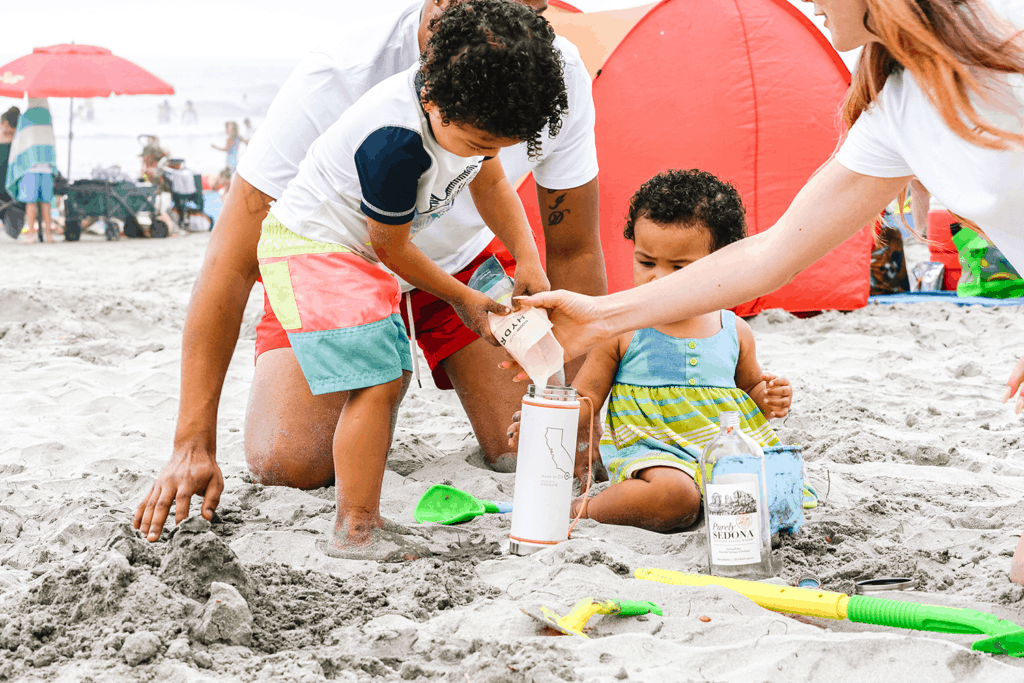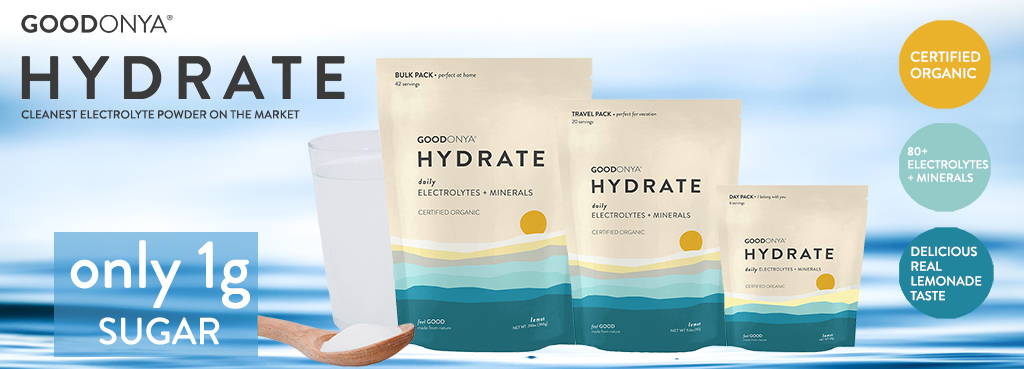
THE BEST SOLUTION FOR DEHYDRATION IN KIDS
Let's face it, as adults, we have a hard time remembering to stay hydrated. We can't expect our kids to remember to drink fluids when they're outside playing on a hot summer day. It's our job to make sure they get what they need to stay healthy and hydrated in the heat.
This can be a challenge, especially if you happen to have a child who is finicky about their food and drink. Sometimes, you just have to get a little creative because, unlike some adults, kids are not going to gulp down a gross tasting sports drink in the name of proper hydration.
Keeping kids hydrated daily is tough enough, but when they get a stomach bug, and you are dealing with dehydration after vomiting and diarrhea, that's when things get really tricky. Fortunately, kids don't get dehydrated quickly, but when they do, it's essential to know the signs and seek medical attention when necessary.
WHAT ARE THE BEST HYDRATION DRINKS FOR MY CHILD?
Keeping your child hydrated with good quality hydration drinks is key to preventing severe dehydration even when they get sick. Below is a list of best hydration drinks for children.
WATER
Water is readily available and does a great job of keeping your children hydrated and quenching their thirst. It has no added junk, so you don't have to worry about them guzzling down a lot of sugar when they are thirsty. No fat, no calories, no problem.
Well, maybe one small problem. It can be boring. Fortunately, there are a lot of healthy, natural ways to add flavor to your child's water without adding undesirable ingredients. Use spring water when you can because spring water has natural minerals in it. Other types of drinking water strip the minerals from the water. Our bodies need these minerals.
Here are a few ideas for flavor-infused water that kids are sure to love:
- citrus
- melon
- apples
- berries
- cucumber
- mint leaves
- a cinnamon stick
Let your child pick out some combinations and help with the infusion process to pique their interest and get them on board. Beware of using fruit juices to flavor water as they are high in sugar content. Fruit juices are certainly not bad for your child, but if they tend to drink a lot, the sugar can add up quickly.
MILK
Kids should drink 16-24 ounces of milk per day. It contains protein, vitamin D, and calcium. It's hydrating and an excellent way to get those servings in.
Almond milk, Coconut milk, and soy milk are good alternatives. Just be sure to get the unsweetened varieties to avoid the extra sugar.
Beware of flavored milks as they contain high sugar content and can have artificial ingredients too.
ORAL REHYDRATING SOLUTIONS (ELECTROLYTE DRINKS)
Big brand electrolyte drinks like Gatorade and Pedialyte have a lot of sugar, and the sugar-free versions have a lot of artificial ingredients. Neither of which is something you want your kids to have in large quantities. However, for kids who sweat a lot, are very active, or are recovering from a stomach bug, oral rehydrating solutions are imperative.
The best "solution" is HYDRATE, an oral rehydrating solution that has only 1 gram of sugar that comes from organic lemon juice. It is made with whole, real, organic ingredients. Organic plant-based stevia and organic lemon juice gives it a sweet, clean, homemade lemonade taste that your child will love.
It has unprocessed vitamins and minerals (electrolytes) to rehydrate your child with the best possible ingredients. It works excellent for rehydration, but it is also perfect for day to day hydration as it has a sweet lemony taste that kids love.
HOW TO ASSESS YOUR CHILD DEHYDRATION?
Signs of mild dehydration in children:
- Dry lips and tongue
- Decreased urination
- Cranky, listless, low energy
- Legs and arms are cool to the touch
- Increased heart rate and respiration
- Sunken eyes or decreased tear production
- Slow capillary refill (Press down on their nail beds they will turn white, if it takes more than 2 seconds to turn pink then they are becoming dehydrated)
Signs of severe dehydration in children:
- Difficulty drinking or unable to drink
- Lips and tongue appear parched
- Minimal or no urination
- Increased heart rate, weak pulse, heavy breathing
- Legs and arms cool to the touch and skin will have a mottled look
- Capillary refill more than 2 seconds
*Prolonged vomiting and diarrhea can cause severe dehydration. Severe dehydration is a medical emergency, and your child will need to be seen by a physician.
HOW DO YOU TREAT DEHYDRATION IN CHILDREN?
The American Academy of Pediatrics recommends the use of anoral rehydrating solutionstarting with a few teaspoons every fifteen minutes or so working up to an ounce per hour and then two ounces per hour until your child can drink normally.
Things to avoid:
- Letting your child guzzle fluids
- Sports drinks, as the high sugar content, can make diarrhea worse.
- Fruit juices with high acid content which can also make diarrhea worse
Be sure to assess for signs and symptoms of severe dehydration if your child has been sick for more than 24 hours and is unable to keep anything down.
IN SUMMARY
Preventing dehydration in children isn't as daunting as it seems if you are armed with the proper tools. Water, milk, and agood quality oral hydrating solution should do the trick. If you have a picky eater (or drinker), you may need to try infused water for a healthy flavor option.
Sugary sports drinks with processed minerals and artificial ingredients are not optimal or necessary to keep your child well hydrated. Keep it natural, so there is no question about what is going into your child's body.
If you keep your child well hydrated daily, they will be less likely to become dehydrated when they get a stomach bug. However, if vomiting and diarrhea persist, even the most well-hydrated of children can succumb to dehydration. Be sure to monitor your child for signs of dehydration and take appropriate action to prevent it from becoming severe.
